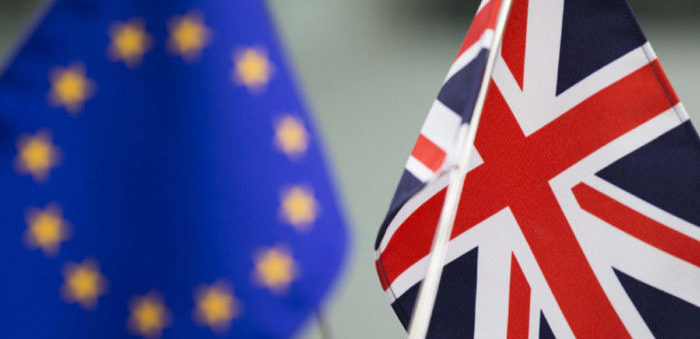As the Brexit negotiations are underway, the UK government published four scenarios in case there is a no-deal Brexit. These scenarios regard seafarers, trade with the EU, maritime security and luorinated gases and ozone depleting substances.
Seafarers
As the UK said, if there’s no deal, endorsements issued before withdrawal by EU countries to seafarers holding UK COCs would continue to be valid until they expire.
[smlsubform prepend=”GET THE SAFETY4SEA IN YOUR INBOX!” showname=false emailtxt=”” emailholder=”Enter your email address” showsubmit=true submittxt=”Submit” jsthanks=false thankyou=”Thank you for subscribing to our mailing list”]
So UK-trained seafarers with an endorsement issued by an EU country, would be able to continue working on board vessels flying the flag of that country until the endorsement expires.
After exit, the rights and obligations placed on the UK as a signatory to the STCWconvention would remain, including those for recognising certificates issued by third countries.
Therefore, in the event of no deal UK’s intention is to:
- continue recognising all certificates that we currently recognise, including those issued by EU and EEA countries after exit;
- seek third country recognition of UK certificates by the EU under the STCW convention.
Fluorinated gases and ozone depleting substances
In the event of a ‘no deal’, the majority of the requirements in the EU ODS and F gas Regulations will continue to apply in the same way after the UK leaves the EU, including in the unlikely event of no deal. This will ensure the UK can continue to phase down the use of F gases and maintain controls on ODS to meet climate change goals and fulfil legal obligations under the Montreal Protocol.
New UK IT systems will be established and administered by the Environment Agency (EA). The reporting requirements upon businesses would not change, only the IT systems they use.
Businesses that produce, import, or export HFCs or ODS or products and equipment pre-charged with HFCs or ODS would need to apply for UK quota to place them on the UK market. Businesses would also use the new UK systems to report on their use of ODS and F-gases.
Maritime security notifications
Article 7 only allows an EU country to issue an exemption for services between its territory and that of another EU country. Therefore, in a ‘no deal’ scenario EU countries would be unable to issue exemptions to vessels, irrespective of registration / flag, operating scheduled services from the UK.
Companies holding these exemptions should prepare for a scenario after exit in which submission of security pre-arrival information would be required before their vessels were permitted to enter the port of an EU country. This requirement would come into effect as soon as the UK leaves the EU.
The UK government intends to continue issuing exemptions for scheduled services from an EU country to a port in the UK, or between ports in the UK, after EU withdrawal, regardless of the outcome of negotiations.
Trade
If the UK left the EU on 29 March 2019 without a deal there would be immediate changes to the procedures that apply to businesses trading with the EU. It would mean that the free circulation of goods between the UK and EU would stop.
For businesses trading with the EU, the impacts would include:
- Businesses having to apply the same customs and excise rules to goods moving between the UK and the EU as currently apply in cases where goods move between the UK and a country outside of the EU. Customs declarations would be needed when goods enter the UK, or when they leave the UK. Separate safety and security declarations would also need to be made by the carrier of the goods.
- The EU applying customs and excise rules to goods it receives from the UK, in the same way it does for goods it receives from outside of the EU. This means that the EU would require customs declarations on goods coming from, or going to, the UK, as well as requiring safety and security declarations
- For movements of excise goods, the Excise Movement Control System (EMCS) would no longer be used to control suspended movements between the EU and the UK. However, EMCS would continue to be used to control the movement of duty suspended excise goods within the UK, including movements to and from UK ports, airports and the Channel tunnel. This will mean that on Importation to the UK, businesses moving excise goods within the EU, including in duty suspension, will have to place those goods into UK excise duty suspension, otherwise duty will become payable.






























































